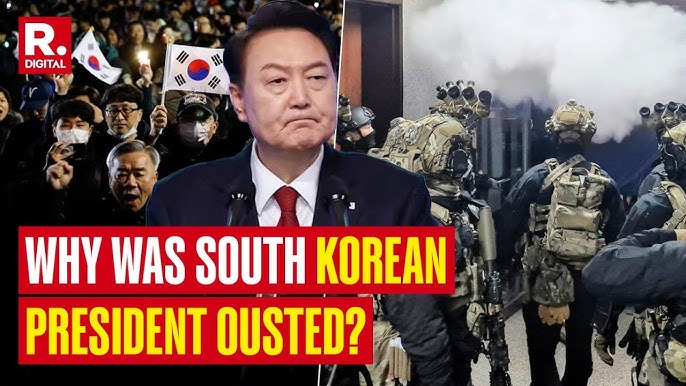April 5, 2025 — Seoul, South Korea
In a historic decision, South Korea's Constitutional Court has formally removed President Yoon Suk Yeol from office following his controversial decision to impose martial law late last year. The unanimous verdict, announced on Friday, upheld the parliamentary impeachment of the president, effectively paving the way for new presidential elections and intensifying the nation's political instability.
The drama began in December 2024, when President Yoon declared a state of emergency, citing a supposed threat of rebellion from opposition factions, accusing them of being sympathetic to North Korea. The martial law order, issued on December 3, was quickly met with widespread opposition and was overruled by parliament, with strong backing from military leaders. Following this, Yoon was impeached mid-December and arrested in January 2025.
The Constitutional Court, in a decisive ruling, dismissed Yoon's justifications for his actions, declaring them to be "unlawful and unconstitutional." Acting Chief Justice Moon Hyung-bae, in the court's official statement, emphasized that Yoon’s actions went beyond the scope of his presidential powers and severely undermined the nation’s constitutional framework.
"The defendant mobilized military and police forces to dismantle the authority of constitutional institutions and infringed upon the fundamental rights of the people. In doing so, he abandoned his constitutional duty to uphold the constitution and gravely betrayed the trust of the Korean people," Chief Justice Moon remarked.
The court also noted that while removing a sitting president carries significant national consequences, the restoration of constitutional order was deemed to outweigh the costs of Yoon’s dismissal.
President Yoon, who faced growing criticism for his actions, accepted the court's ruling with a statement expressing gratitude to his supporters. "It has been a great honor to serve as president," he said, acknowledging his "many shortcomings" but thanking those who remained loyal throughout the ordeal.
Despite his acceptance of the verdict, Yoon's arrest sparked violent protests, with his supporters clashing with law enforcement and storming the Seoul Western District Court. The former president now faces charges of leading an insurrection, a serious offense for which a South Korean president is not granted immunity. If convicted, Yoon could face life imprisonment or even the death penalty.
South Korea’s constitution mandates that a new president be elected within 60 days of an impeachment. Until that election, Prime Minister Han Duck-soo will serve as interim president, overseeing the country’s transition to a new leader.
The swift and dramatic downfall of President Yoon marks a significant chapter in South Korea’s political history, as the nation grapples with the fallout of one of its most turbulent presidential crises.
Is this content hitting the mark for you? If so, consider supporting my work—buy me a virtual coffee! 



